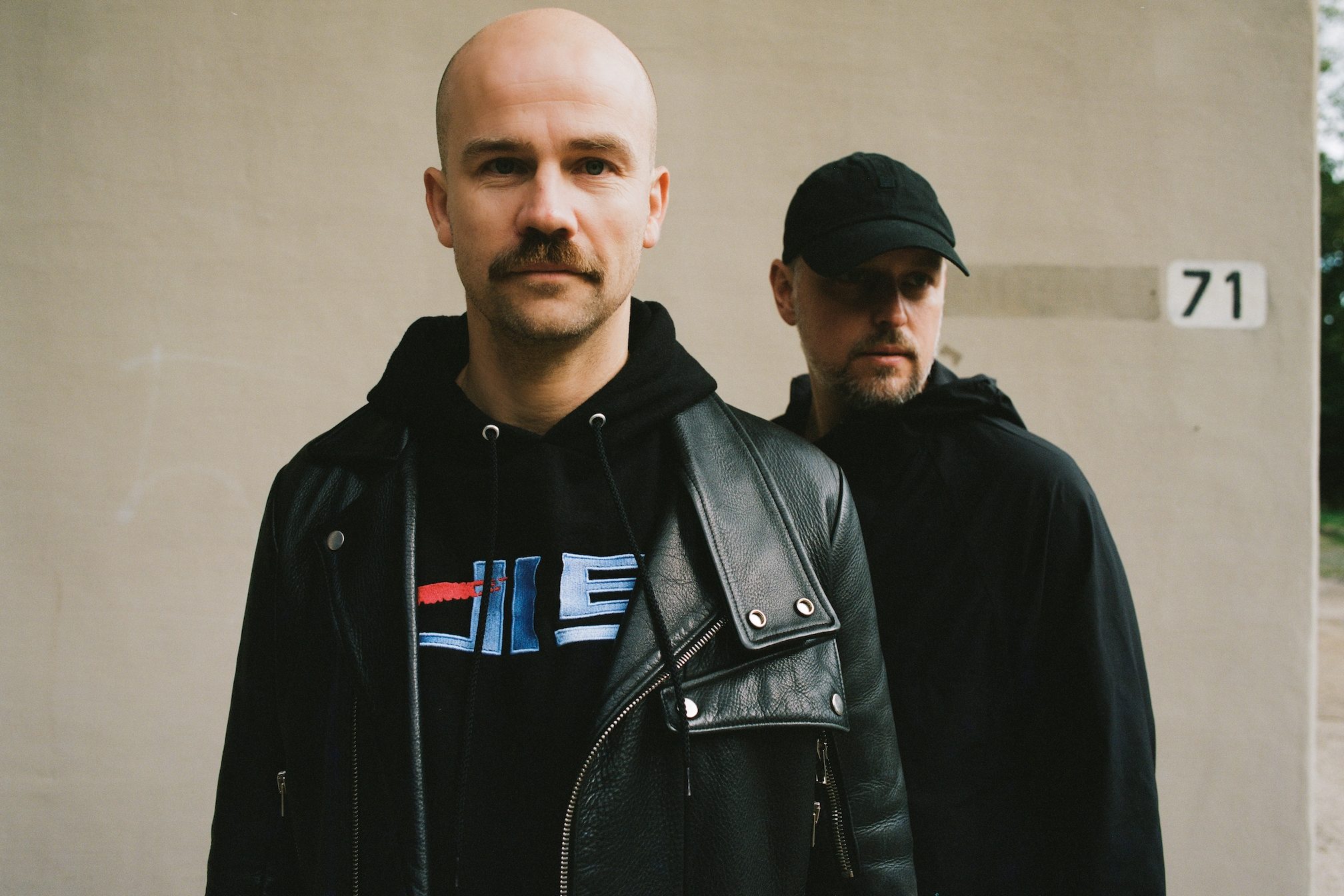 Cover Story
Cover Story
Adana Twins: the label owners, A&Rs, producers and DJs known for playing the hottest long-sets around the world
Learn how merging Benjamin’s love of hip-hop and Friso’s passion for club music became a global success
Adana Twins is a German duo that have been working together since 2006, merging Benjamin’s love of hip-hop and Friso’s passion for club music to produce a series of highly-regarded releases that form the foundation of their global success.
Their early triumphs led to bookings all over the world, delivering their unique musical vision to dance floors on every continent, with support from a wide range of dance music luminaries including Radio 1 legend Pete Tong, Solomun, Tale Of Us and many more.
Now firmly established within the global dance music community and one of the most popular Indie Dance acts around, the Adana Twins are now respected as label owners, A&Rs and producers, while inspiring DJs who love to play long marathon-sets.
We interviewed them for the latest cover of the mag. Check it out next!
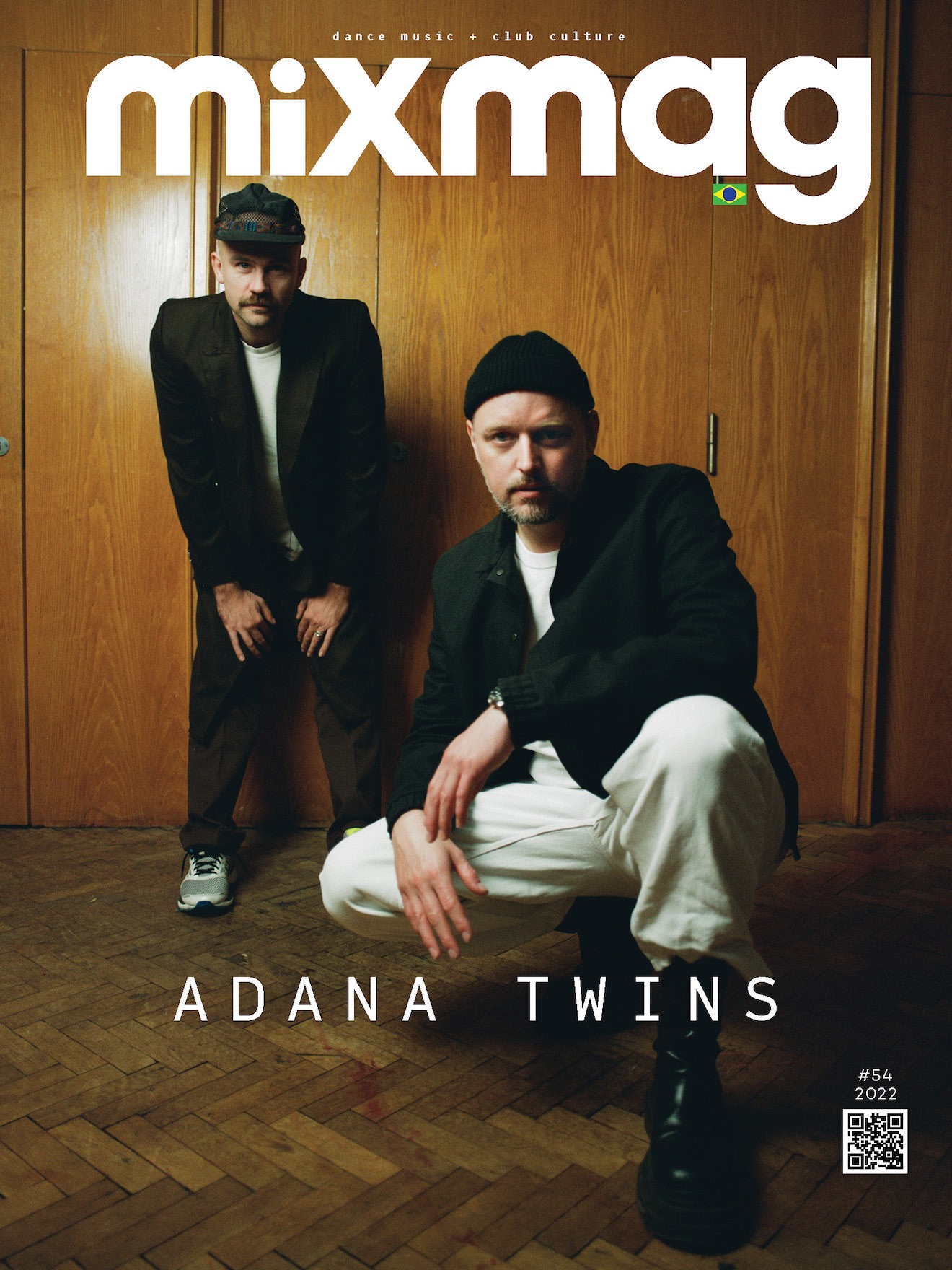
Hi guys! Please tell your story to the Brazilian audiences that may not know you yet. How was your beginning in Dance Music?
Benjamin: We have to dial back in time to 2004. At that time we both started studying graphic design & new media at the Design Factory in Hamburg.
During this time we became good friends and we partied together. Then we started organizing parties for our schoolmates and we thought it might be fun to play music at those parties together, too.
One day one of Friso’s friends, he was working within the Hamburg Foo Club, saw us playing together at one of those parties and she liked it so much that she asked us to play at her birthday. Until then we had no name as a duo as we just spinned some records for fun.
She said: guys, we need a name for the flyer of the party. In one week. We said ok, let’s think about it. And we met for brainstorming at a Turkish restaurant and ordered Adana Kebab. When the Kebab arrived we said: let’s be funny and just name ourselves Adana Twins for this one night only. Well, it obviously became more than one night.
With the new name in our bag we started djing every weekend in a small bar called Pooca. We started at 11pm and ended mostly between 8 and 10 am. This was the best school we could have.
We organized parties at off locations and we were the first ones that brought the Ed Banger sound to our city. Then one day we met with Andre Stubbs. Back then he was the owner of Neidklub & Baalsaal.
Now he is the owner of PAL, home to the who is who of DJs in Hamburg. We were still playing all-night-long once or twice a year. He asked us to organize parties in his clubs. So we became residents at Neidklub and had our party series every Thursday at Baalsaal.
To this parties we invited Keinemusik. I think it was their first ever party outside of Berlin. Other guests were Renaissance Man, Surkin, Strip Steve and many more.
And by the time we became a bit older our music changed more and more into deep house and we became Residents at Solomun’s Club Ego which brought us closer to the Diynamic crew.
During all this time we started producing too and with our ‘Everyday EP’ on Exploited we had our breakthrough and our lives changed completely. The rest is history…
Friso: Yes, as Benjamin said, we started producing music in 2009. In 2012 we released our first successful single ‘Strange‘. It was the kickstart of our DJ career.
While we were residents at Solomun’s club Ego in Hamburg we invited artists like Mind Against for the first time to Hamburg or Acid Pauli who did a wonderful remix of our song ‘Strange’.
Talking about releases… we had two successful songs on Diynamic: ‘Uncompromising‘ and ‘My Computer‘. The latter was a game changer, pushing us straight from Melodic into the top artists of the Indie Dance genre where we feel very comfortable until today.
AT the same time longtime supporter Pete Tong invited us to record an ‘Essential Mixes’ for his show on BBC 1. As a teenager this was merely a dream of ours. This was also the time our long-lasting friendship with Berlin label and club Watergate started.
Most people probably know us for the mix release we did on their label. One of the exclusive track was our remix for Patrice Bäumel’s track ‘Roar’ which became one of the club hits of that year.
Another milestone was probably our set for Cercle. It’s no secret that the Cercle team is doing one of the best jobs in the industry right now. So we were more than happy to get the opportunity to play a DJ set at such a wonderful venue, the Palais Longchamp in Marseille.
In our set we also played one of our most successful remixes: the seminal track of the early 90s acid house movement ‘Higher State Of Consciousness’ by Josh Wink.
Since the original files from that time have been lost we could give a lot of love to the acid bassline and made two different versions.
Josh liked it so much that he was asking us to send our new bassline… what an honor!
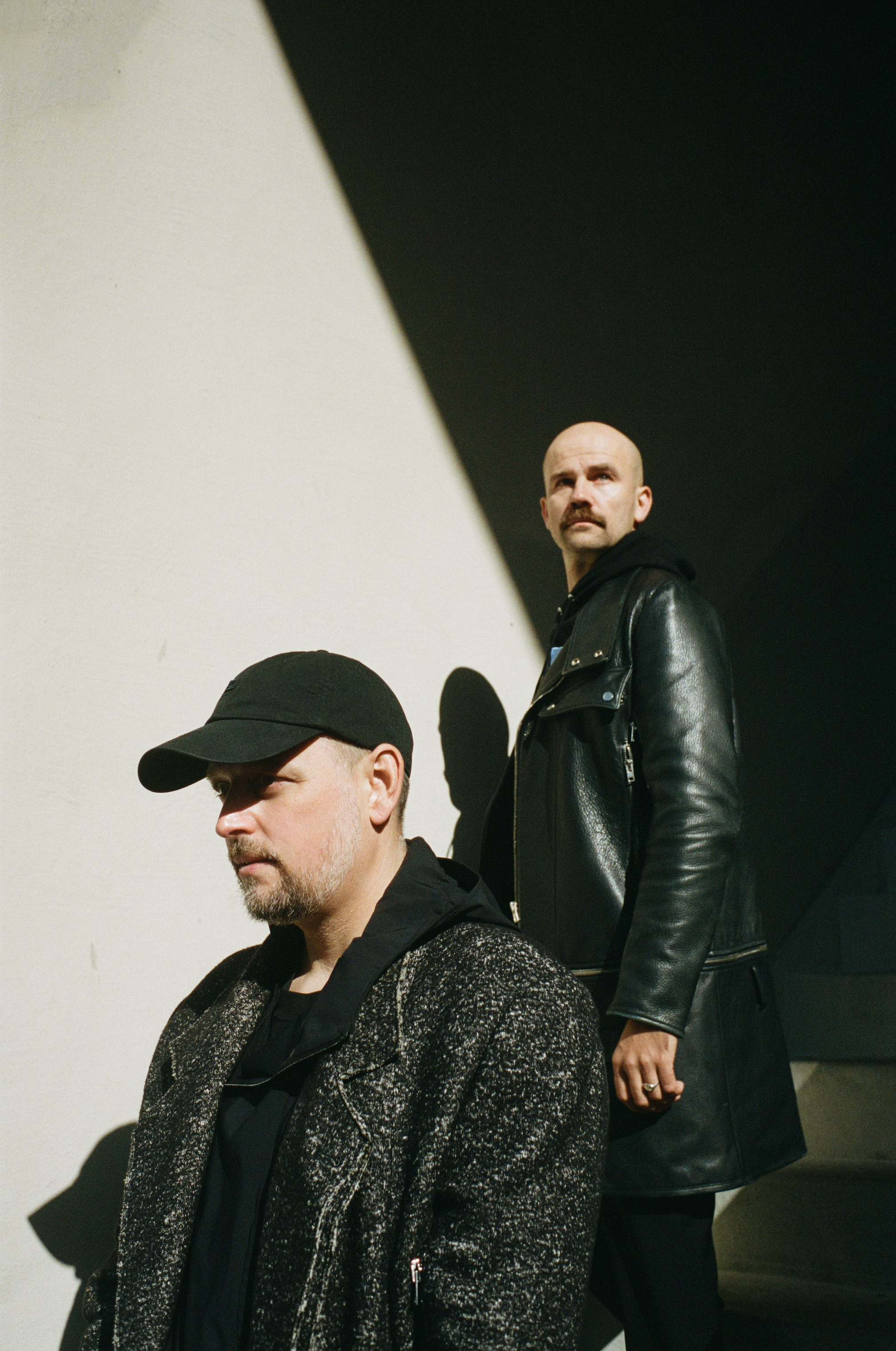
The Adana Twins are now known as DJs, label owners, A&Rs and producers. What is the next?
Friso: We probably need to become singers or movie stars ;) No, I think it’s quite a diverse, creative spectrum we’re operating in and in which there is still a lot to discover.
After the pandemic, a lot of things are changing, and you can kind of hear that in the music or at the club nights. There is a new party generation, young people who are full of energy.
It’s definitely going to be an exciting time. We as artists have also had to question ourselves and see if what we do is still up to date and fits into the new times.
Luckily it does and we still love to party with people like there’s no tomorrow. It’s the same with the label, everything is a constantly changing process, we question ourselves in conversations and in the end also with the people on the dancefloor.
If they don’t like the music we produce, release on the label and DJ anymore, our work just wouldn’t make sense anymore. I’m especially looking forward to the coming time in terms of producing.
You can try out a lot of things again, find new genres, all in all simply an exciting time and the crazier the world gets, the more it needs art, culture and music!
Benjamin: As we are deeply anchored in music and nightlife I can imagine that we will build up an agency to push our TAU Artist more and more. As we really love our manager it could be a nice Idea if we do it all together. Let’s see what the future brings.
Also, I am vegan and in my hometown Hamburg I am missing a fully plant based fine-dining restaurant. Of course there are nice options, but nothing compared to the stuff you can find in Tel Aviv, Los Angeles, New York and so on. So maybe this is also a project for the future.
I would also love to build up a TAU community with events beside music. It could be nice movie nights, dining events, Yoga Lessons or simply art exhibitions. A creative space that connects people and that gives you a good time.
A nice example is ‘The Underground Museum’ in Los Angeles. If we could do something like this with TAU it would be simply fantastic. And we definitely will soon start to expand our TAU merchandise.
Speaking about TAU, did you started it to launch own music independently or it was more like a new business to add on?
Friso: There are several aspects. In general we had the idea of starting our own label for a very long time, but as so often: good things take time. Certainly one point is to be able to release our music independently of course.
It has many practical advantages when everything comes from one source and we simply have even more freedom when it comes to our music. It allows us to define ourselves and our musical environment much better.
We are always on the lookout for new music and new talented young artists and at the same time choosing music helps us to sharpen and develop our sound.
It’s just great to give a platform to other musicians like Innellea, Echonomist or Biesmanns. Michi (Innellea) did the first release on TAU as a young talent and now he became a star. We are really happy for him. To work with so many artists is of course a great gift!
Benjamin: But the label also gives us the opportunity to develop new formats and to live out our entire creativity.
In terms of music alone we can create different formats and styles on our own: There has already been a chillout compilation or our annual Spektrum Various Artist compilation always comes out in new formats.
Last time there was a printed magazine that presented all the artists in detail the year before it was a cassette tape. And the Ambient compilation came as a limited Box with Palo Santo wood. That’s why we named it Palo Santo.
TAU is our playground where we can do new things we always wanted to do.
Actually the genesis of the name TAU describes the history and content quite well. Before the label we had the idea of opening a club in Hamburg’s red district on the Reeperbahn.
The name of the street comes from the so-called “Reepschläger”. Craftsmen who used to make rope for ships. TAU is German for rope.
These thick ropes are made from several individual strands to create a rigid “TAU” which later withstands wind and weather.
It’s similar to our label: a big cosmos that combines many individual ideas and categories into a strong overall construct.
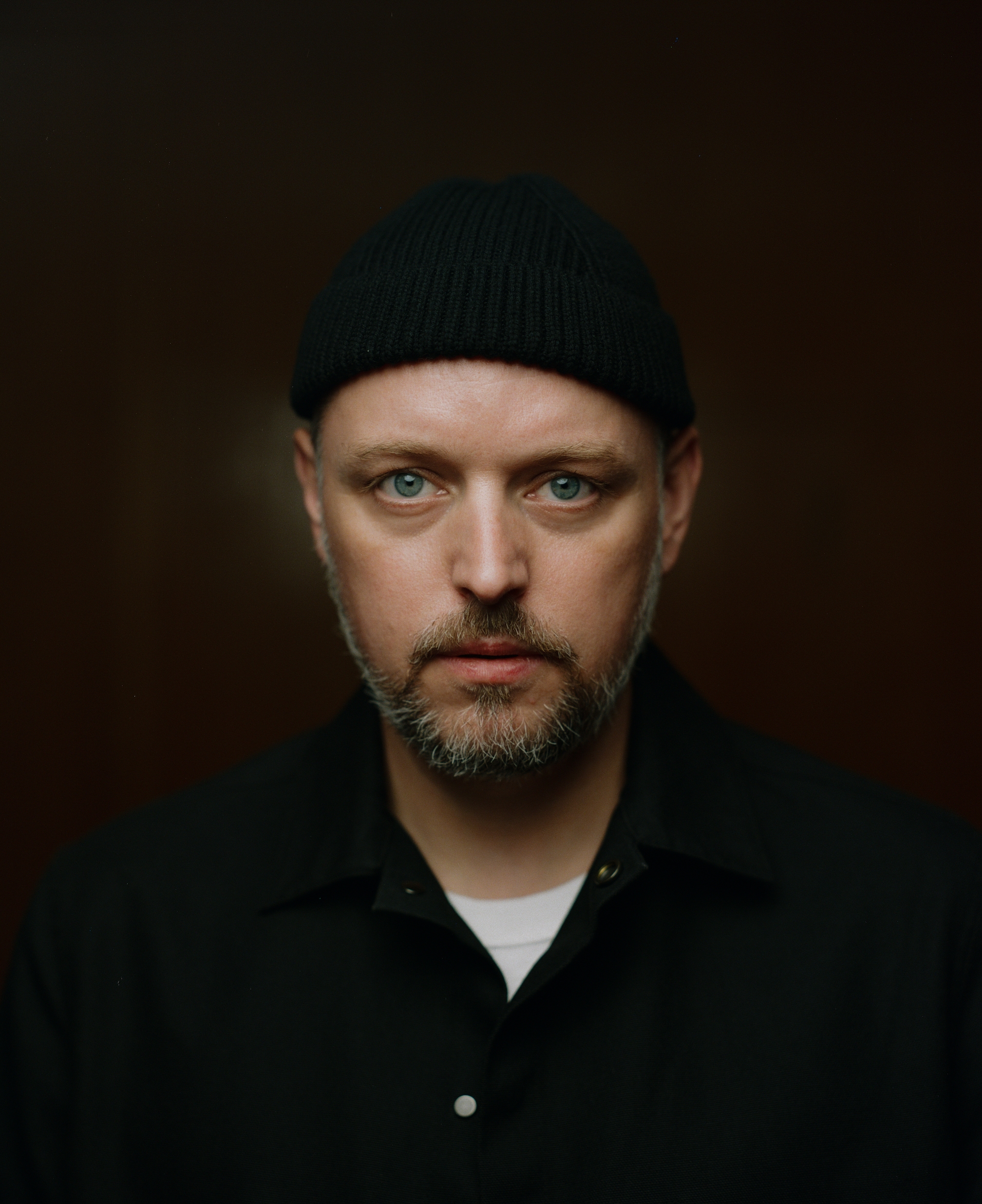
What type of music fits best the label and how can artists submit music?
Friso: Like our annual compilation, we’ve always been in a spectrum of electronic music, so there’s a certain bandwidth.
Since we’ve always loved to play long sets, you can think of the music on the label as an all-night-long night that we play.
In the beginning the music is calmer, maybe doesn’t even have a bass drum, then it gets faster, rockier, full of energy, can sometimes go to techno, comes back again.
There are moments of good humor, disco ecstasy, it gets spun, gets an afterhour character. It’s very eclectic.
We love mixing unreleased tracks with old gems, playing through the decades of music history. Giving the old a new coat of paint, a new facet.
I think Derek from Cercle once called it retrofuture. That sums it up very well.
Benjamin: We are lucky enough to work with wonderful artists but of course we are always on the lookout for new talent, new music and new influences.
Unfortunately we can’t always listen to everything that is sent to us, but most of the time you quickly notice if someone makes the effort to send more than just a standard email.
Of course we also look at Soundcloud or Instagram ...
If it’s the right music, it will find its way ;-)
You’ve got 6 big releases scheduled to drop between now and the end of the year (including Watergate 20 Years). How do you manage such intense schedule?
Friso: Since we split the workload between us two, it’s actually just half the work. It is certainly an advantage that there are two of us.
The only problem is that sometimes both want to do everything ;) Like in a good relationship, one can help the other and if you can even work simultaneously, sometimes it goes even faster.
It’s always been the case that we’ve often made music separately and together in the studio. It’s the same with the upcoming releases.
Some of them are from Benjamin, some from me and some we produced together in the studio. It’s great, you produce a track and get feedback right away. That can speed up the whole process quite a bit.
Benjamin: Anyway, I’m really looking forward to the new tracks. You can tell how much fun we’re having in the studio again.
The first one is our new single called ‘Snake Ritual’ which always sets the floor on fire and it’s currently the highlight in our sets, followed by a remix we did for Curses and Local Suicide. Great vocals, cool rock vibe.
We have a new acid-bomb on the Spektrum compilation mentioned earlier with Jasmine Azarian who was also featured on a VTSS track last year and who also just had her first exhibition the legendary Louvre in Paris.
And we close the year with a track on the Watergate compilation with mysterious vocals by an artist who shall remain unnamed.
Oh and our first remix on TAU for our good friend Lehar. This one is really chilled and shows our love for emotional music far away from the dancefloor.
And 2023 we will start with a remix for Jan Blomqvist, who comes from the same city as me. What a coincidence!
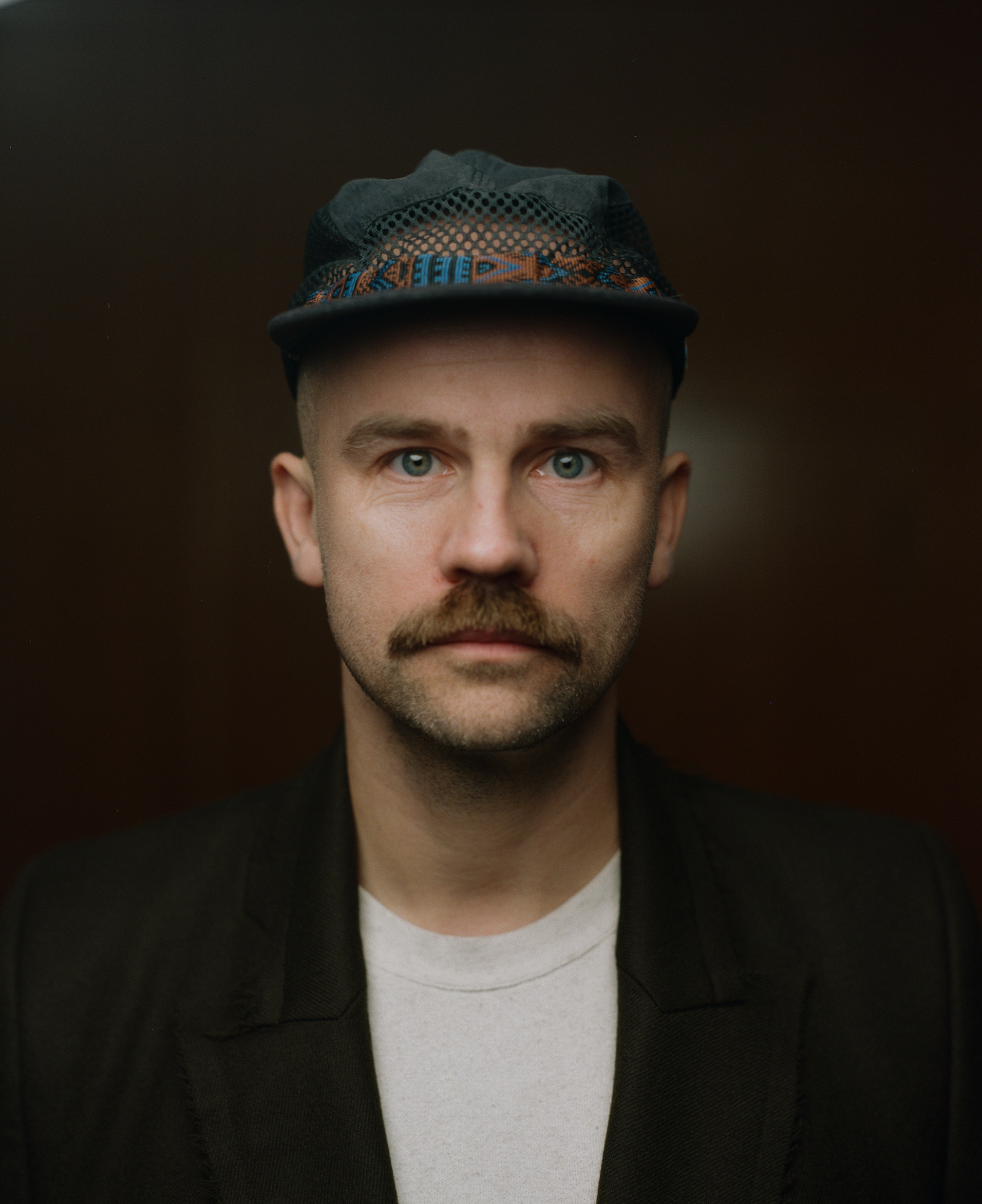
Tell us about your new single Snake Ritual
Benjamin: It’s currently the highlight in our sets. When producing the song I wanted to explore different sounds you are not used to from Adana Twins. A step away from our retro-future sound to a more percussion-driven vibe.
When I finished the beat I was playing around with some lead ideas and suddenly I found this flute sound in one of our VST plugins called repro-1 and within a minute I get so inspired that it was super easy to write this earworm hook.
Yes, it’s not a sample. It’s 100 percent Adana Twins. After we played it several times we made some changes.
In the beginning it was more like a classic break that built up on the flute sound. But I was not 100 percent happy with this when playing it.
So I changed the Idea in the break from the flute built up to a tempo change built up with the ARP2600 sound of the track.
And this works now super nice on the dancefloor. Proof that it’s important to test all our tracks a lot before we release it.
Any other side projects or news you guys can share with the Brazilian audiences?
Benjamin: I think this was the longest interview we ever did and we already talked a lot.
As we are expanding our TAU label nights to other countries we definitely hope to do one in Brazil soon since we love the country so much!
And there are rumors that we started working on an album. But it’s still in the very early stages and we are still figuring out which direction we will take. .
When will be the next Brazilian tour? :)
Defo in 2023! Our booking agency is already working on it.
Last: we always ask for advice for new talents hustling to get careers off the ground. Can you both share tips for them?
Benjamin: Always believe in yourself. And if people make fun of your first results, it’s probably better not to believe them.
I clearly can remember when I made my first beat as a teenager. I was so proud and showed it to some of my ‘friends’. They made fun of it and I was so frustrated that I stopped making music.
Luckily when I moved to Hamburg years later I started again. It was not easy for me to finish songs and to show it to people.
But my surroundings in Hamburg were way better and here I found my real friends and connected with other people from my hometown again who I was not connected to when I was growing up. The older ones.
And well, what can I say: These so-called friends that made fun of me now have boring 9 to 5 jobs and are still living in the same small village while I made my dream come true: Touring around the world, playing music in front of amazing people and I can afford living from it.
Also it helped me a lot to get into a straight daily routine when it comes to my production process. That means my children wake me up at 7, after bringing them to the Kindergarten around 9am I start working in the studio.
It’s a ritual to make myself a coffee and breakfast and light up an incense stick to get into a nice vibe. I also like to work in a clean and non-messy studio. These little things are helping me a lot to be creative.
Also sometimes it can happen that you have days where you are not so creative. But that’s ok. Don’t stress yourself too much. Take a break.
When that happens I do other things. Listening to music, doing office stuff or just relaxing and doing nothing. And sports is also a big thing for me to get more focused.
After a weekend with all the travel stress, boxing helps me to clear my mind and to go back on track.
Oh well… I guess in the beginning of your career it probably helps having a backup plan. I was working full-time in an advertising agency.
I was so lucky that my boss Jo Marie was saying: “Stop working for us and make music full-time. We see you love it. If it’s not working out, come back to us!” More proof to have people in your surrounding that believe in what you are doing…
Friso: I agree. Believe in yourself and be surrounded by good people. But it’s certainly always a good thing to do something you love. Regardless of the music.
For us, it was like this: At first, we worked a lot in ‘real’ jobs and our music-life was more of a hobby. Until we were able to live from music.
Long story short: passion is important to realize one’s goals and dreams! For example, I set up a design agency with friends and played on weekends and produced music in the evenings/at night.
Then I agreed with my partners that I didn’t have to work on Mondays so that I could rest. Then came Thursdays, when we often flew somewhere and finally my business partners told me that they were very happy for me and my success but that maybe it was time to live completely as a musician.
It was important in my life to surround myself with good people. Friends who support my passion. I think that was also an integral part of my success and gave me the opportunity to go my way – step by step.
Of course, there’s always a fair amount of luck involved, being at the right place at the right time, and so on... It’s a good idea to live in bigger cities where there are lots of clubs, musicians, and producers you can talk to and get lucky.
For me, meeting other people is a big part of being human. What would life be like if you couldn’t meet friends and get to know new people?
Clubs are places to meet people and I would definitely party a lot if I wanted to become a producer ;)
Photos: Philipp Gladsome
Stlyling by Siki Im
All clothes by SIKI IM
Shoes stylist's own


